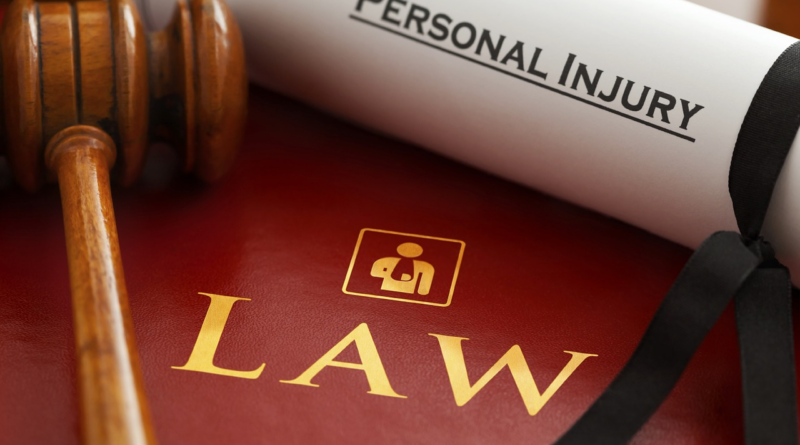Personal Injury Law – Get The Compensation You Deserve
You’ve been injured. You know the feeling: you feel like you’ve been hit by a bus, and you can’t move. You’re in shock, and the pain seems to be everywhere. When this happens, your first instinct may be to call an ambulance. But before you do anything else, it’s important to understand your legal rights and what you can do to get the compensation you deserve. In this blog post, we will introduce you to personal injury law and explain the basics of what you should do if you’ve been injured in an accident. We will also provide tips on how to protect yourself from making any costly mistakes during your legal proceedings.
What is Personal Injury law?
Personal injury law is a legal system that deals with the consequences of injuries to people. This system of law usually aims to compensate people who have suffered harm as a result of someone else’s actions.
Personal injury law can involve both civil and criminal proceedings. Civil proceedings are filed by the person who has been harmed, while criminal proceedings are filed by the government or another party (usually the defendant) to punish someone for their actions.
A personal injury lawyer can help you navigate your injury case through all stages of the legal system. They will work to gather evidence and make sure your rights are protected throughout the process. If you have been hurt as a result of someone else’s negligence, call a personal injury lawyer immediately to start building your case.
The Different Types of Personal Injury Cases
There are many different types of personal injury cases, and each has its own set of legal rules and procedures. This article will briefly discuss the most common types of personal injury cases, and provide tips on how to find the right lawyer for your specific situation.
Fault vs. No-Fault Cases
The first thing to consider is whether you are filing a fault or no-fault case. In a fault case, the plaintiff (the person filing the lawsuit) must prove that the defendant (the person or company accused of causing the injury) was at fault for their injuries. In a no-fault case, however, there is no requirement for the plaintiff to prove that the defendant was at fault; instead, they only need to show that their injuries were caused by some type of accident.
Economic Damages vs. Non-Economic Damages
Next, you will need to decide which type of damages you are seeking: economic damages or non-economic damages. Economic damages include reimbursement for medical bills, lost wages, and other related costs. Non-economic damages, on the other hand, typically refer to pain and suffering (such as mental anguish or physical impairment), loss of consortium (the relationship between spouses or parents and children damaged by an injury), and punitive damages (which are intended to punish the wrongdoer).
Tort law varies from state to state; therefore, it is important to contact an attorney who is familiar with your specific jurisdiction’s
What Are the Different Types of Personal Injuries?
Many different types of personal injuries can occur. These include slips, trips, falls, car accidents, workplace injuries, and more. If you are injured as a result of someone else’s negligence, you may be entitled to compensation.
To determine whether you are eligible for compensation, it is important to understand the various types of personal injury law. This includes understanding the general categories of damages that may be available to you, as well as the different components of these damages.
In general, three main types of damages can be awarded in a personal injury lawsuit: actual damages, economic damages, and punitive damages. Actual damages are the monetary losses that you experience as a direct result of your injuries. Economic damages include both your out-of-pocket expenses and lost wages. Punitive damages are designed to punish the offender and deter future misconduct.
How to File a Personal Injury Claim
If you have been hurt in an accident, you may be entitled to financial compensation. There are a few things you need to do to file a personal injury claim and get the best possible outcome.
First, get medical records from the doctor who treated you and any other doctors who treated you as a result of the accident. These records will help prove your injuries and how they occurred.
Next, take pictures or video of the scene of the accident and any injuries that occurred. This will help document what happened and support your claim.
Finally, gather all of your evidence related to the accident and put it together into an organized folder. This will make it easier for your lawyer to review your case and provide you with advice on how to best proceed.
How to Negotiate a Settlement in a Personal Injury Case
If you are experiencing personal injury, it is important to seek legal help as soon as possible. A personal injury lawyer can help negotiate a settlement with the victim’s insurance company on your behalf. There are a few things you need to know to negotiate a settlement:
-Know Your Rights: It is important to understand your rights and what the insurance company is obligated to pay. The insurance company may be willing to pay more if they feel that you have been wronged.
-Be Persistent: If you are persistent in negotiating a settlement, the insurance company may be more likely to offer you a deal. Do not give up until you have received an offer that meets or exceeds your expectations.
-Talk To An Attorney: If you decide to go ahead with negotiations without an attorney, be sure to have all of your paperwork ready and review any potential legal pitfalls. An attorney can provide guidance and protect your interests during negotiations.
What Is Jury Trial?
The jury trial is a type of trial in which a jury of your peers, not a judge, decides the verdict. Jury trials are usually more exciting and dramatic than other types of trials because they involve people who are not familiar with the law. This means that you have a better chance of winning if you choose to go to a jury trial.
There are disadvantages to going to a jury trial. First, it can take longer than other types of trials to reach a verdict. Second, it can be more expensive because you will need an attorney to represent you. Finally, jurors may not be as familiar with complex legal issues as judges and may give less weight to expert testimony. Nevertheless, jury trials remain an important part of our judicial system and are often the best way for individuals to get justice if they have been wronged.
Conclusion
If you or someone you know has been injured in an accident, don’t hesitate to seek legal help. A personal injury lawyer can help you figure out the specifics of your case and make sure that you receive the compensation that you deserve. Whether the accident was your fault or not, it is important to have a lawyer on your side who will fight for what is rightfully yours. If you are considering hiring a lawyer, be sure to do your research and find one who specializes in personal injury law. Thank you for reading!




